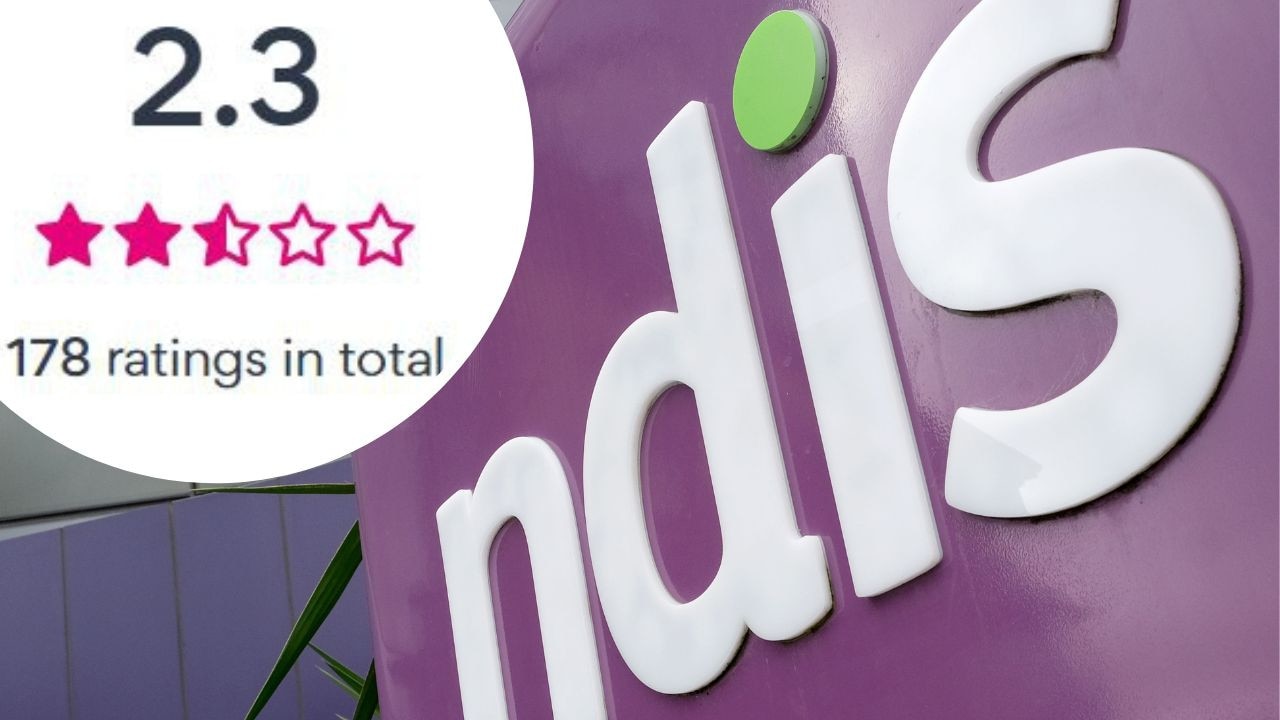‘Devastating’: Australians lift lid on life-threatening national medical crisis
A sinister, whispered warning from a doctor left Aussie model and actor Amelia Tang convinced “they were going to let me die”.
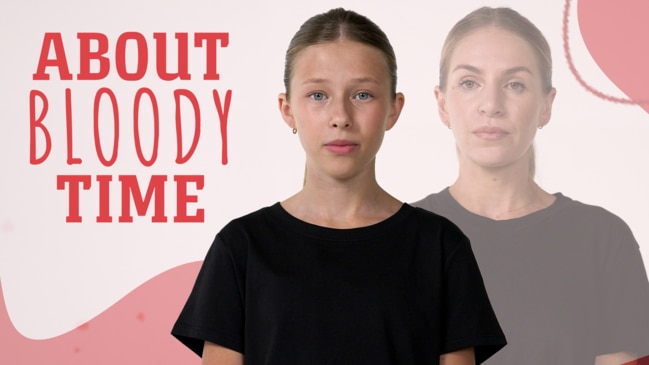
Health
Don't miss out on the headlines from Health. Followed categories will be added to My News.
OPINION
Medical gaslighting and medical misogyny are nothing new – but it’s time we put an end to it.
When I was 13, I got my first period. I still remember the extreme pain – feeling like my insides were being torn apart by white-hot burning blades, covered in acid that seeped through my abdomen.
But, like most people with a uterus who experience pain, I was dismissed. I was told it was normal.
Just period pain. Take a Panadol.
And so I lived most of my life believing this pain was normal. At least, until I was in my early 20s and broke my wrist – that’s when I realised my abdominal pain was worse than a broken bone, and that certainly wasn’t normal.
Neither were my expanding symptoms, like extreme chronic fatigue, brain fog, intense muscular and nerve pain and constant pins and needles that would regularly make my hands and legs go numb.

But despite the impact these symptoms had on my life – like needing to leave my job, being unable to cook or clean and always being in pain, feeling entirely zapped of any essence of energy – getting a medical professional to help me was a whole other story.
When it comes to pain, so many women aren’t heard. I went to a female GP first – figuring maybe I’d have a better shot at being heard, because she too had a uterus. I’d been speaking to her for a few minutes – I hadn’t even told her all my symptoms yet – when she interrupted me, insisting my pain was caused by dairy. I tried to tell her it wasn’t dairy, several times, before telling her I was vegan. This made her pause, eyes narrowing, lips pursing.
“Well,” she said, tongue tinged with steel. “It must be your weight then.”
The words hit me like a freight train. I’d always believed that if I was unwell, doctors would help me.
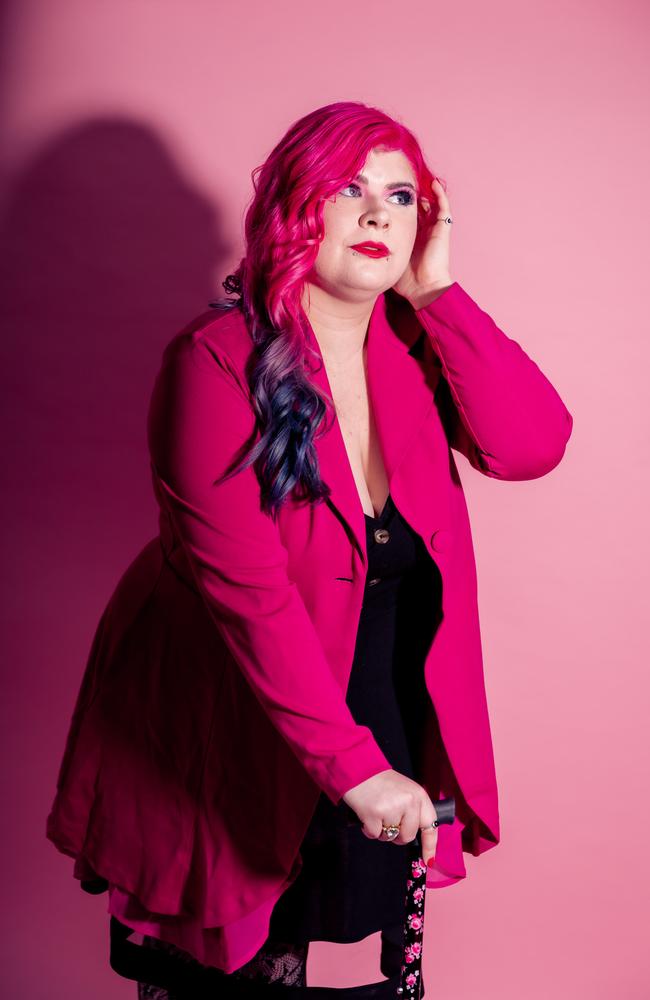
Becoming disabled and chronically ill showed me how often that just isn’t the case.
I left her office with no tests, no treatment and no advice. Worse: I thanked her for it. And unfortunately, experiences like this – and much, much worse – are all too common.
And that’s because, despite the fact that we as a society don’t really talk about it, invisible disabilities and chronic illnesses are pretty common. Out of the 4.4 million Australians who are disabled, 90 per cent have invisible disabilities – and people with a uterus have significantly higher rates of chronic pain and illness.
According to the Victorian women’s health survey, 40 per cent of women are living with chronic pain. And yet, despite the frequency of people experiencing these conditions, two in three women have experienced gender bias or discrimination in healthcare. Often, this comes in the form of not being believed.
We’re told we’re attention-seeking drama queens, trouble makers, that it’s just in our head, or there’s nothing they can do. They blame our mental health or our weight, without even looking into it. We often have to beg for tests, even more so for medications and treatment, usually needing to go to doctor after doctor, until we find one who listens – and helps.
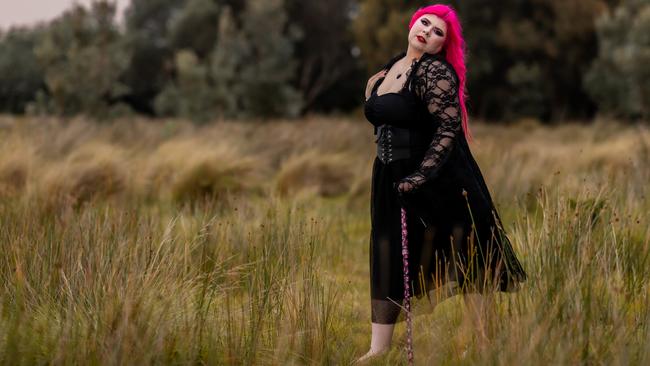
For me, it’s been eight years, countless doctors and countless examples of misogyny and gaslighting.
And I’m not alone.
I spent my entire life savings, because I wanted answers and help. Now, even though I have some answers – like fibromyalgia, likely adenomyosis and likely myalgic encephalomyelitis/chronic fatigue syndrome (ME/CFS) – there are things I can’t get help with. I can’t even get them to investigate: again, a very, very common experience in our healthcare system, and something I want to highlight through the voices of our community. So, I put a call-out for people to share their experiences. And I received so, so many back. It was honestly devastating to hear from literally hundreds of people who’d felt unheard or harmed by the healthcare system.
One person spent years trying to convince their doctor to take their symptoms seriously, while their health deteriorated significantly.
“In that year, I had experienced hair loss, cognitive issues, brain fog, extreme exhaustion and physical weakness. I wasn’t able to stand for more than a few minutes at a time and I passed out a few times. I was no longer able to work,” she said.
“My doctor finally confessed to me that she had assumed it was just anxiety, and had ordered blood work just to placate me.”
This dismissal isn’t just devastating. It can cause long-term health impacts when symptoms are ignored and conditions go untreated.
“I was completely gaslit by a male GP,” Jules D said, who later lost hearing in one ear when her doctor wouldn’t give her a referral.
“If he had referred me to an audiologist, I could’ve prevented the deterioration from Meniere’s disease, which I was eventually diagnosed with four years later.”
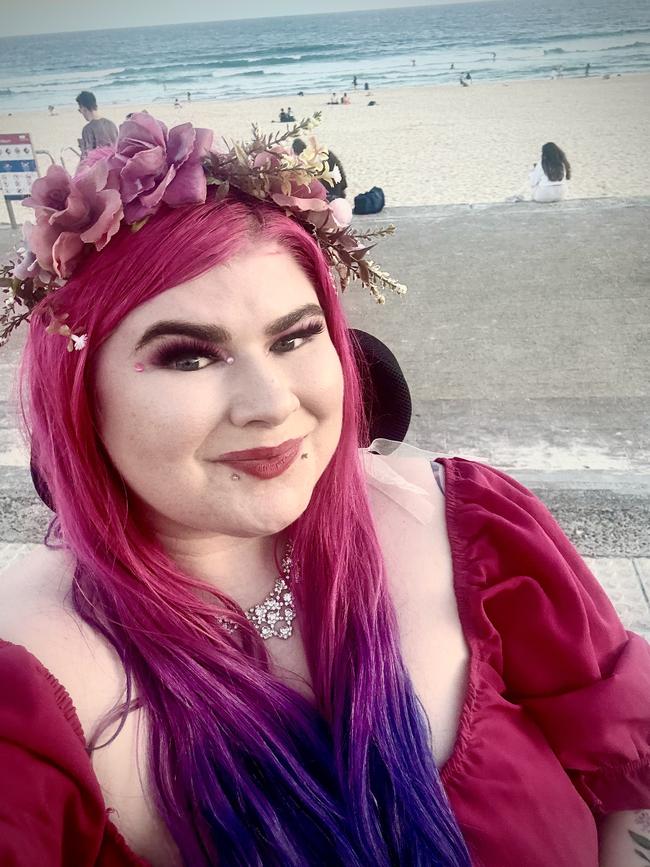
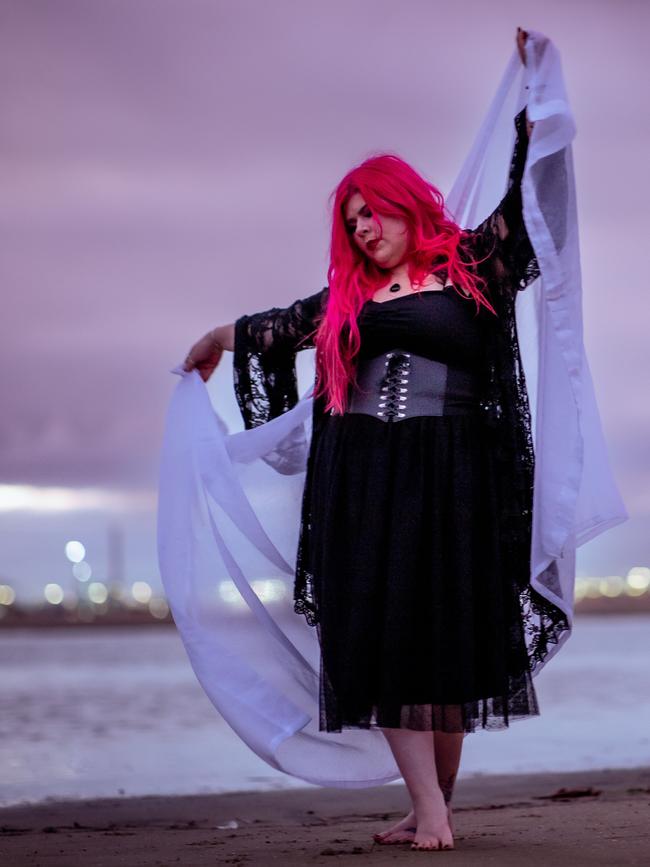
Medical gaslighting and misogyny is rampant in Australia. Just ask Anne Wilson, CEO of Emerge Australia.
“For people with invisible disabilities, the healthcare system can feel hostile … we see a pattern where patients are met with scepticism or outright dismissal,” Ms Wilson said.
“The constant invalidation is devastating and delays much-needed care. For someone with ME, this might mean being diagnosed with anxiety or depression, when in reality, they have a debilitating physical illness.”
But medical gaslighting and medical misogyny is nothing new. It’s been happening to us for centuries. Just look back to the 18th and 19th century, where women were often diagnosed with “hysteria”, a term that literally comes from the Greek word for womb, “hystera”.
And unfortunately, these dismissive attitudes are alive and well in the medical system today.
I mean, just look at how little research has been done on conditions that either largely, or specifically, impact those of us with a uterus – like endometriosis, adenomyosis, PCOs, fibromyalgia, myalgic encephalomyelitis (ME), POTS and Ehlers-Danlos syndrome. They are underresearched, underfunded, underrecognised, and chock-full of ableism and gender bias. It’s no wonder it takes an average of seven years of fighting for people to be treated for their endometriosis – and even longer for other conditions that aren’t as well known, with many fighting decades to be heard.
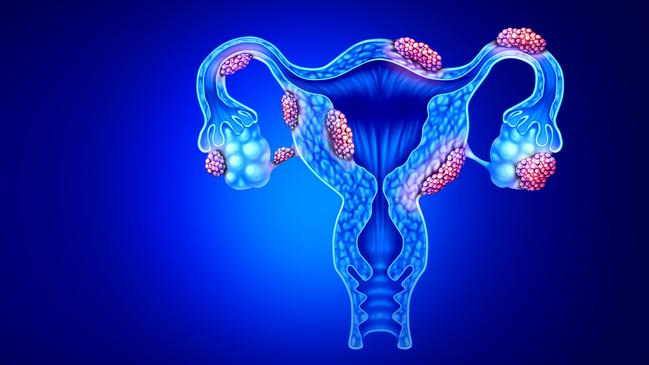
Invisible disabilities and chronic illnesses are far more likely to be dismissed.
Actress and myalgic encephalomyelitis (ME) advocate Eliza Charley has had her fair share of medical gaslighting and misogyny from doctors since developing ME in 2009. Her condition has fluctuated over the years, and at worst, has rendered her housebound, bedridden and requiring full-time care.
Even after more than a decade of living with the disease, she still encounters medical professionals who harm her and has needed to set up a GoFundMe page for help.
“It’s so unjust to pay for consultations that only lead to gaslighting, name-calling, harmful advice and zero help,” she said.
After asking her doctor for a simple request – a referral to a specialist for medication that had previously worked for her, the doctor snapped.
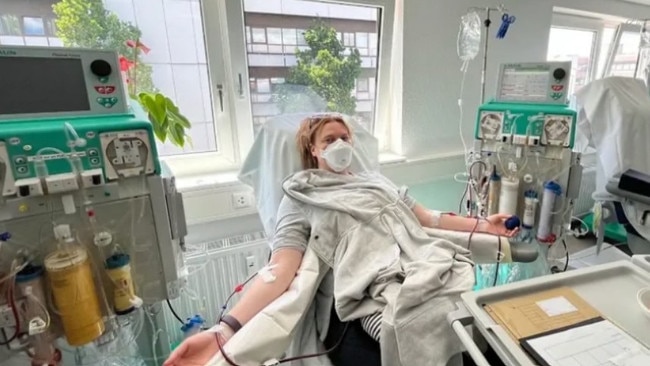
“She became strangely enraged, condescending, denying my diagnosis, and then saying ‘everyone has a bit of that’, and laughing cruelly, mocking what she knew of my personal life. It was heartbreaking,” she said.
Model and actor Amelia Tang also lives with ME, and said the condition is rarely taught in medical schools, so many professionals don’t know how to diagnose it, or aren’t aware of what it even is.
As a result, Amelia was unable to receive a diagnosis in the public hospital system for ME – and is often treated horribly in the medical system.
“I was treated like scum between their toes just taking up a bed,” they said.
Amelia was eventually able to get a diagnosis privately with their specialist.
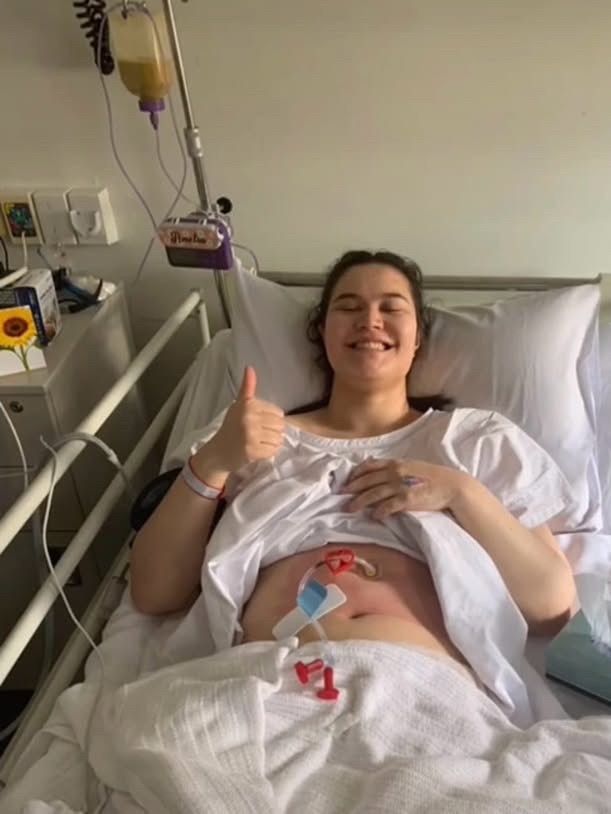
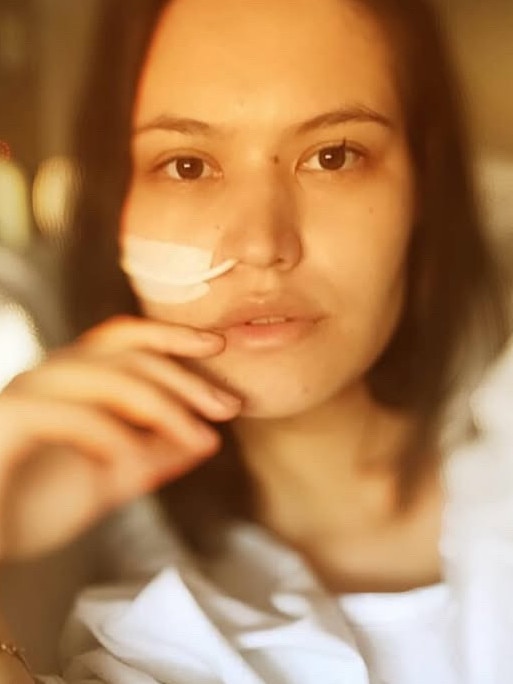
“Even when I was so sick, I hadn’t been able to swallow any water or anything else. My dad had to carry me out of the hospital and take me to another one, who also treated me the same.”
Amelia became so unwell they needed fluids via IV, but were again refused treatment.
“My private neurologist had to send a letter to St Vincents to tell them I was not malingering or faking, and to give me the IV fluids so I wouldn’t die,” they said.
“The doctor whispered into my ear that day ‘no NG tube, no IV fluids’, because he believed he would be ‘reinforcing my behaviours’ … I hadn’t been able to eat anything orally in two days. And they were just going to leave me there.
“The scariest thing was not that I thought they were going to let me die. The scariest part was not knowing how long they would leave me until they intervened.”
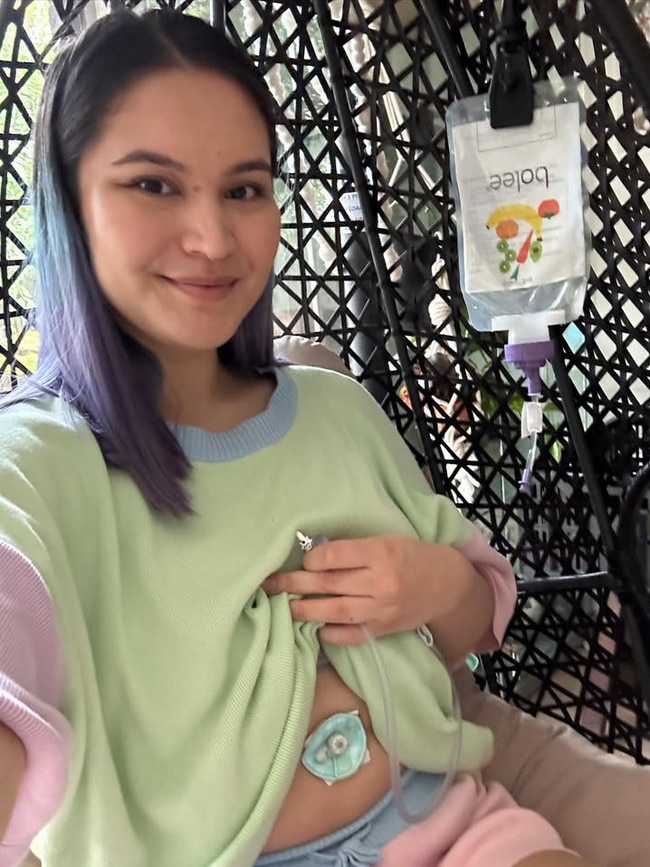
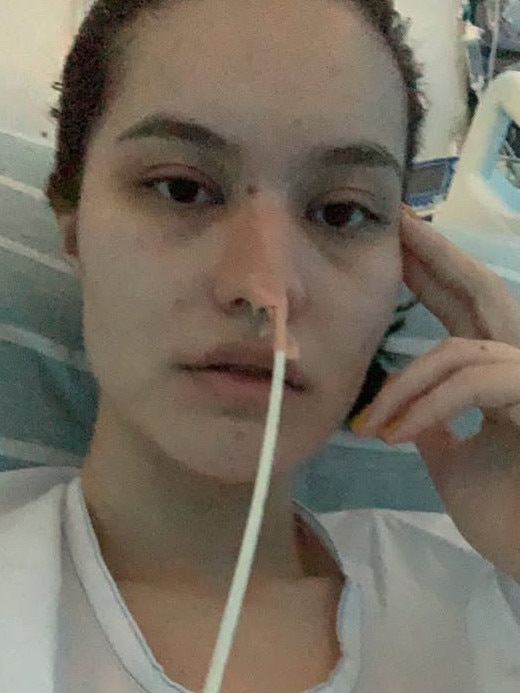
The medical system has caused so much harm to so many people – and it needs to stop. Because how many of us are silently suffering? How many of us aren’t captured in the statistics? How many of us are just hoping for a doctor who will help, and truly “do no harm”?
I’m willing to bet it’s a hell of a lot of us.
I feel our collective pain, fused over centuries of dismissal and harm. It’s 2024, and it’s not f**ing good enough.
We. Deserve. Better.
Zoe Simmons is an award-winning disabled journalist, copywriter, speaker, author and advocate. She writes to make the world a better place. You can find out more about Zoe on her website, or follow her on Facebook, Instagram, Twitter, LinkedIn or TikTok
Originally published as ‘Devastating’: Australians lift lid on life-threatening national medical crisis




